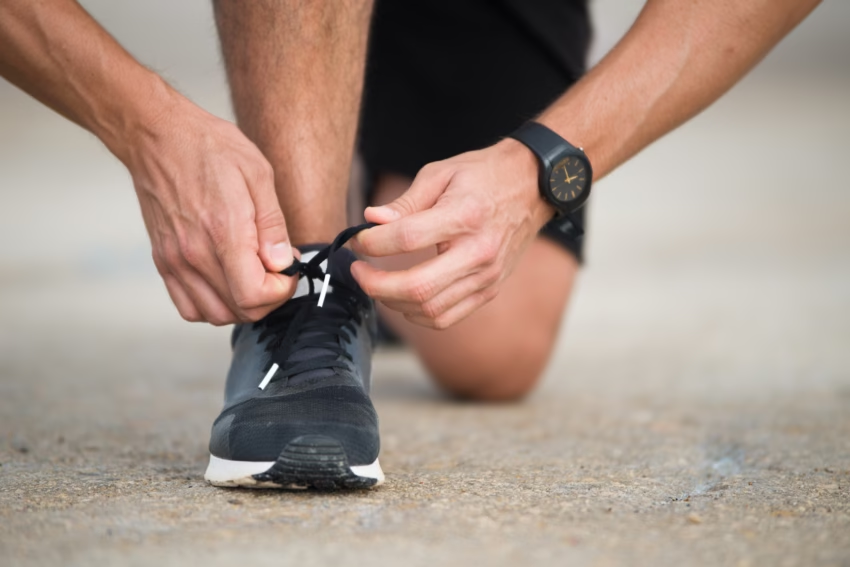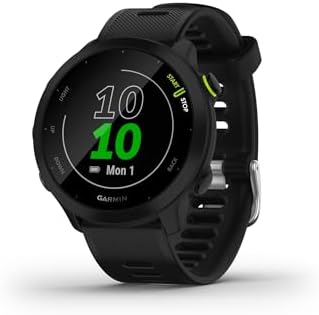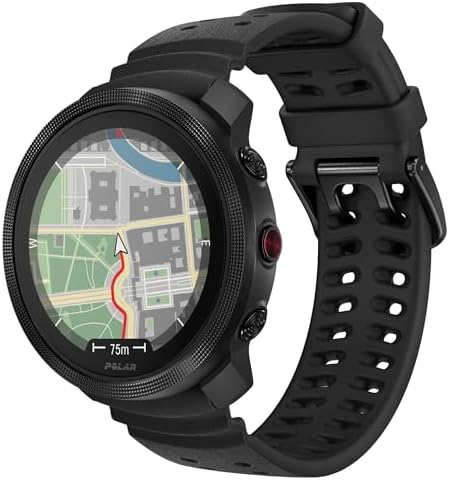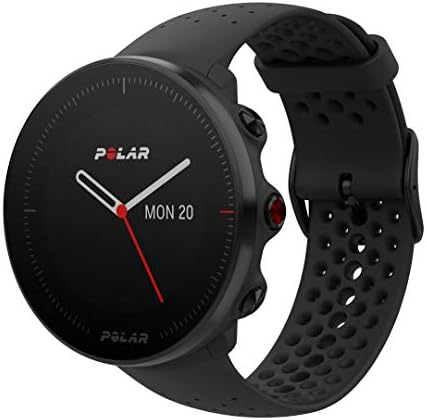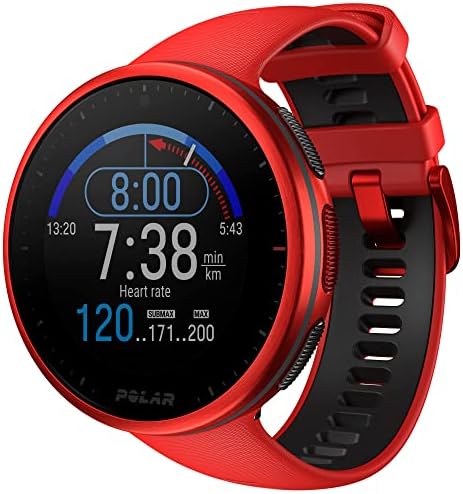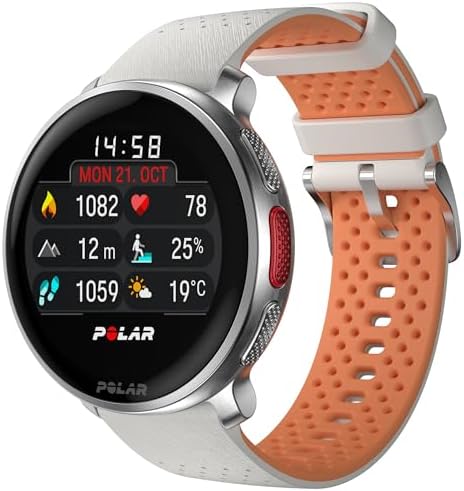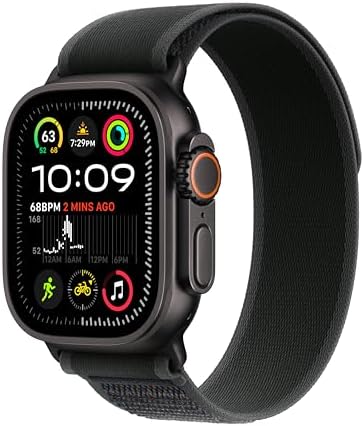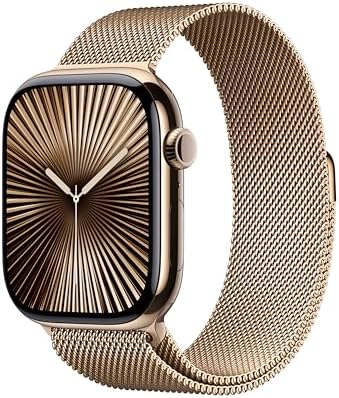This post contains Amazon affiliate links. As an Amazon Associate I earn a small commission from qualifying purchases. It may also contain eBay affiliate links.
Introduction to Running Watches
In the realm of fitness and athletics, running watches have emerged as essential tools for both amateur and professional runners alike. These sophisticated devices, initially conceptualized for mere timekeeping, have evolved significantly over the years to incorporate advanced technology that enhances the running experience. The marriage of innovation and athleticism has led to the development of watches that cater to the diverse needs of today’s runners.
Modern running watches are equipped with features that go way beyond the basic functionality of the humble watch. The integration of GPS tracking technology allows runners to monitor their routes and distances with precision. the ability to save this data makes progress tracking over time so much simpler. This feature has transformed the way athletes train, as it enables them to analyse their performance in real time and make informed improvements. Furthermore, the health monitoring capabilities of these watches are pivotal for tracking vital statistics such as heart rate, calorie burn, and overall fitness levels. This data not only assists in optimizing training regimes but also contributes to understanding individual health risks.
The journey of running watches began with simple stopwatches, but over time, advancements in digital technology have propelled these devices into the smart-tech era. Many modern running watches are now compatible with smartphones, allowing athletes to synchronize their data for a comprehensive view of their training progress. Moreover, features such as virtual coaching and social sharing have made these watches an integral part of the sport, fostering community and motivation among runners.
This brief overview illustrates the significance of running watches in the fitness landscape, setting the stage for a more in-depth exploration of how features like GPS tracking, health monitoring, and distance measurement contribute to enhancing the overall running experience.
Key Features to Look for in Running Watches
When selecting a running watch, several key features play a crucial role in enhancing the overall running experience. One of the most significant aspects is GPS accuracy. This technology allows runners to track their routes accurately, ensuring reliable distance measurement and pace calculations. A high-quality GPS watch should provide fast satellite connections and maintain accuracy even in challenging environments, such as urban areas surrounded by tall buildings.
Another essential feature is heart rate monitoring. Many modern running watches come equipped with built-in optical sensors that track heart rates during workouts without the need for a chest strap. Continuous heart rate monitoring offers insights into the intensity of workouts and overall fitness levels. Additionally, this data can help runners understand their heart health and recovery processes.
The capability for distance tracking further solidifies the practical use of running watches. Accurate distance measurement is paramount for those training for races or seeking to improve their performance. Many watches provide metrics such as laps, intervals, and auto-pause functions to cater to various training styles.
Battery life is another vital consideration; ideally, runners should choose a watch that can last through long training sessions or several days of regular use without requiring constant recharging. Look for devices that offer energy-saving modes to maximize battery performance during lengthy runs.
Waterproof capabilities also denote a good running watch, especially for those who train in various weather conditions. A watch that can withstand rain or splashes ensures durability and functionality. Finally, advanced models also include additional health metrics, such as sleep tracking and VO2 max measurements, providing a comprehensive understanding of the runner’s fitness trends. By considering these features, runners can make informed choices when investing in a functioning and efficient running watch.
Top Running Watches with GPS Tracking
In the realm of running, having a reliable watch with GPS tracking can significantly enhance the overall experience, making it easier for runners to monitor their performance, understand their progress, and stay motivated. Below is a curated list of some of the top running watches that feature advanced GPS capabilities, catering to various needs and preferences.
The Garmin Forerunner Range stands out as an excellent choice for serious runners. This watch offers comprehensive GPS tracking, allowing users to accurately monitor their distance, pace, and route. The Forerunner 255 is equipped with advanced metrics, including VO2 max estimates and recovery time suggestions, enhancing its utility for training purposes. Its user-friendly interface and an impressive battery life of up to seven days in smartwatch mode make it a preferred option among athletes.
Another notable mention is the Polar Vantage Range, which not only offers precise GPS tracking but also integrates other health monitoring features. This watch provides real-time feedback on running performance and includes unique tools like Training Load Pro, which helps maintain optimal training intensity. Its lightweight design and multiple sports profiles enhance versatility, making it ideal for runners who engage in various activities.
The Suunto Range is another great choice, the Suunto 9 Baro is engineered for those who venture into rugged terrains. With its robust GPS tracking capabilities, this watch is designed to endure long distances and challenging weather conditions. It features multiple battery modes and intelligent tracking, ensuring that the GPS remains active for extended periods. Additionally, the Suunto app allows for detailed post-run analysis, aiding runners in evaluating their performance.
Lastly, the Apple Watch Series combines smartwatch functionality with comprehensive fitness features, including accurate GPS tracking. It offers seamless integration with various health apps and allows runners to customize their workout metrics, making it a favorite among tech-savvy individuals. With its large display and user-friendly navigation, the Apple Watch Series enhances both usability and style. A number of models are available including the Ultra which is ideal for rugged multi terrain use. The Apple watch has the added advantage of being compatible with your other Apple devices and allows you to receive messages and calls on the go.
These running watches are equipped with advanced GPS technology that assists runners in tracking their routes and measuring distances with accuracy. Each device provides unique advantages tailored to meet the varying demands of a diverse range of runners.
Health Tracking Features in Running Watches
As fitness technology advances, the incorporation of health tracking features in running watches has become essential for athletes and fitness enthusiasts alike. Modern running watches are equipped with sophisticated sensors and algorithms designed to monitor critical health metrics, ensuring users maintain optimal performance during training and recovery. Among the most vital features is heart rate monitoring. This capability allows runners to gauge their effort levels accurately, which is crucial for preventing overtraining and enhancing endurance. Advanced models provide continuous heart rate tracking, enabling athletes to stay within their desired heart rate zones throughout their workouts.
Calorie counting is another significant feature offered by many running watches. By calculating calories burned during exercise based on heart rate, distance, and personal metrics, these devices help users manage weight and optimize their training. This information is invaluable, as it allows athletes to tailor their nutritional intake according to their activity levels, ensuring they replenish energy stores appropriately.
Stress level tracking is becoming increasingly integral to running watches, offering insights into the physiological effects of training. By evaluating heart rate variability and other factors, these devices can help users identify periods of high stress, allowing them to adjust their training regimens or implement relaxation techniques. Furthermore, quality sleep analysis is another critical component in overall health monitoring. Many running watches can track sleep cycles, providing users with an understanding of both sleep duration and quality, which is essential for recovery and overall well-being. By leveraging these health tracking features, runners can make informed decisions about their training while prioritizing their health.
Monitoring Distance Like a Pro
When it comes to running, knowing the distance covered is crucial for effective training, performance assessments, and goal-setting. Modern men’s running watches employ advanced technologies, primarily GPS, accelerometers, and footpods, to provide accurate distance monitoring. Each of these methods has its unique advantages, ensuring runners can track their progress accurately.
GPS technology is a dominant feature in many running watches. It works by connecting to satellites to pinpoint a runner’s location in real-time. The precision of GPS tracking varies based on conditions; for instance, dense urban environments or heavy tree cover can disrupt signals, leading to potential inaccuracies. However, when functioning optimally, GPS offers highly accurate distance measurement, making it a reliable option for both casual joggers and competitive athletes.
In addition to GPS, accelerometers play a vital role in distance monitoring. These sensors measure movement patterns by detecting changes in speed and direction. They are particularly beneficial when GPS signals are weak, making them a good alternative for indoor running or on treadmills. Accelerometers can provide a consistent estimate of distance based on the activity’s intensity, although they might not be as precise as GPS in certain outdoor settings.
Footpods also contribute to enhancing distance measurement in men’s running watches. These small devices attach to shoes and calculate distance by measuring the number of strides taken and the length of each stride. While footpods can provide reliable data, they require calibration to the individual runner’s unique stride length. However, their advantage lies in their ability to function regardless of GPS availability, providing runners with continuous feedback.
In conclusion, reliable distance monitoring is integral to any runner’s journey. With advancements in technology, running watches equipped with GPS, accelerometers, and footpods offer varying degrees of accuracy, helping runners optimize their training sessions and ultimately meet their ambitions.
User Experience and Interface
The user experience (UX) of running watches is a crucial element that significantly influences their overall effectiveness. With the multitude of features offered by these devices, an intuitive user interface (UI) is essential for athletes seeking to maximize their performance. A well-designed interface allows runners to access critical metrics such as distance, pace, heart rate, and GPS tracking data quickly and efficiently during their workouts.
A primary aspect of a positive user experience with running watches is the ease of navigation. Runners often engage in high-intensity activities where every second counts. Therefore, the interface must support swift and uncomplicated transitions between different tracking metrics. Many watches have adopted a tactile interface, allowing users to swipe or tap through data screens with minimal physical strain. This responsiveness not only saves time but also minimizes distractions that could hinder a runner’s focus on their performance.
Moreover, the visual presentation of data plays a significant role in the usability of running watches. An effective display should present information clearly and concisely, making it easy for users to interpret their metrics at a glance. Some models offer customizable screens, enabling athletes to personalize which metrics are most visible during their runs. Such flexibility enhances the experience, as it caters to individual preferences and training needs.
Furthermore, the integration of software that analyzes data trends over time can significantly enhance user engagement. Features such as goal-setting, historical performance tracking, and average metrics provide runners with a comprehensive overview of their progress. Therefore, a well-structured user interface not only facilitates real-time access to data but also encourages continued usage and support for runners striving to optimize their training routines.
Battery Life and Charging Considerations
When it comes to running watches, battery life is a crucial aspect, particularly for long-distance runners who need reliable performance over extended periods. Many modern GPS watches offer various features such as real-time tracking and health monitoring, which can significantly impact battery longevity. Understanding how these functions affect battery life is essential for choosing the right device. Generally, GPS usage alone can considerably drain the battery; hence, it’s vital for users to assess how long these devices can last under different conditions.
For instance, many running watches in the market boast impressive battery life in smartwatch mode, often extending to several days. However, when GPS is activated, the duration may decrease to only a few hours. Runners should look for models that specify their GPS usage time and evaluate how sacrificing other features may benefit overall battery performance. Certain watches allow users to switch between battery-saving modes, which can prolong usage when needed, despite limiting some advanced functionalities.
Health monitoring features, including heart rate tracking and activity profiles, also play a significant role in a watch’s energy consumption. Runners should be aware of how these ongoing health assessments may affect battery life, particularly during long training sessions or races. To optimize battery performance, users can consider charging their devices fully before runs, disabling unnecessary features, and using power-saving settings when GPS accuracy is less critical.
In reviewing various models, it becomes evident that runners need to balance their requirements regarding various watch features and battery performance. Selecting the right running watch with a strong battery capability can ensure that tracking progress and health remains seamless throughout their training journeys.
Price Range and Value for Money
When considering the best men’s watches for running, understanding the price range and assessing value for money are crucial elements. Running watches can generally be segmented into three primary categories: budget, mid-range, and high-end models, each offering a distinct set of features that cater to different types of runners.
Budget options, typically priced under £100, are often equipped with basic functions such as distance measurement and pace tracking. While these watches provide essential features for novice runners or recreational users, they may lack advanced GPS capabilities and health monitoring functionalities. As such, investing in a budget watch can be a prudent choice for those who are just starting out or do not require an extensive array of features.
Mid-range watches, generally falling between £100 and £300, offer a more robust feature set, including built-in GPS tracking, heart rate monitoring, and even connectivity to smartphone apps. These watches provide better accuracy and additional metrics that can enhance a runner’s training experience, making them a suitable investment for serious runners willing to balance performance with cost. The added functionality justifies the increase in price, allowing users to gain insights into their running habits and health metrics.
High-end models, ranging from £300 to upwards of £1,000, boast cutting-edge technology and enhanced features. These watches often incorporate comprehensive health monitoring, including VO2 max estimation, recovery tracking, and advanced navigation options. For professional athletes or dedicated enthusiasts, the investment can be worthwhile, as these advanced functionalities can lead to improved performance and more informed training decisions. However, potential buyers should consider whether the enhanced features are aligned with their running goals and budget constraints.
Ultimately, the key to making an informed decision lies in identifying the appropriate balance between desired features and affordability. Selecting a running watch that meets individual needs without overspending is essential for maximizing value for money.
Conclusion: Finding Your Perfect Running Watch
Choosing the ideal running watch is a pivotal decision for any runner, whether a novice or seasoned athlete. Throughout this blog post, we have examined the key features that can greatly enhance your running experience, focusing on GPS tracking, health monitoring, and distance measurement. Each of these elements plays a crucial role in helping runners meet their individual goals and improving performance over time.
GPS tracking stands out as an essential feature, providing real-time data on distance covered and route navigational support. Accurate distance measurement allows runners to assess their progress, ensuring they stay on track with personal objectives. On the other hand, health monitoring functions, such as heart rate tracking, ensure that users can maintain an optimal training intensity while avoiding potential overexertion and injuries. These technological advancements have made running watches indispensable tools for modern athletes.
When selecting a running watch, it is paramount to evaluate your personal running needs and preferences. Some may prioritize fitness tracking features, while others might focus more on the watch’s design or battery life. It’s important to consider how different functionalities align with your training regimen and lifestyle. For example, if you participate in long-distance events, you might prefer a watch with extended battery life and advanced GPS accuracy.
Ultimately, the process of finding the perfect running watch should be tailored to your specific requirements. Consider the reviews, functionality comparisons, and personal experiences shared by other runners as you make this important investment. By doing so, you will certainly find a running watch that complements your exercise routine, propelling you toward your fitness ambitions and ensuring an enjoyable running experience.
This post contains Amazon affiliate links. As an Amazon Associate I earn a small commission from qualifying purchases. It may also contain eBay affiliate links.
